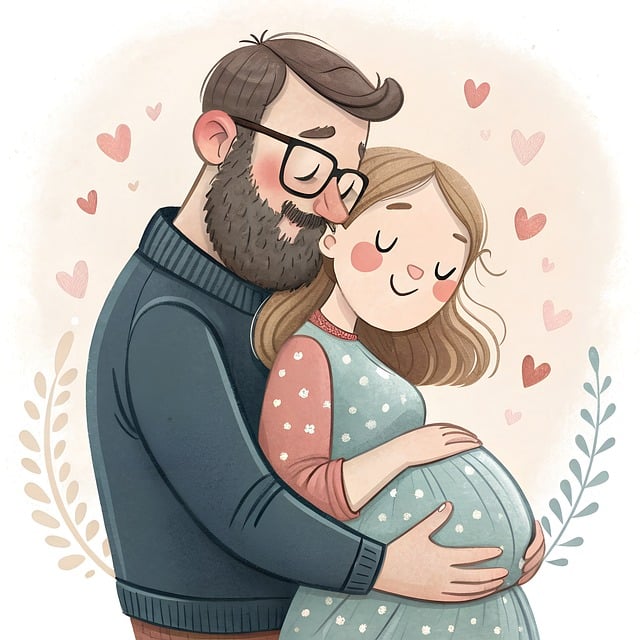Many individuals and couples seeking help at fertility clinics are often navigating the difficult journey of trying to conceive. While some may struggle with becoming pregnant, others face challenges in maintaining a pregnancy. Experts in reproductive health are highly skilled in identifying and addressing the causes of recurrent pregnancy loss. “When we talk about recurrent miscarriage,” says Dr. Emily Carter, “I believe around three percent of couples face this heart-wrenching experience. Since we monitor our patients from the early stages of their pregnancies, we often see a higher rate of loss than what’s generally reported.”
Traditionally, a miscarriage was labeled as “recurrent” after a woman experienced three losses. However, advances in reproductive medicine now recommend that women seek evaluation after just two losses. Miscarriage, often defined as a loss before 20 weeks, frequently occurs in the first trimester due to various reasons — primarily, chromosomal abnormalities in the embryo or issues related to implantation. “Interestingly, in about half of the cases, we can’t pinpoint a specific reason for the miscarriage,” Dr. Carter notes.
Understanding the Causes
While knowledge about early pregnancy loss has expanded, the initial causes presented by patients can vary. According to Dr. Carter, the most commonly accepted causes of recurrent miscarriage include:
- Chromosomal abnormalities in the parents
- Conditions like anti-phospholipid syndrome that increase blood clotting risks
- Structural issues in the uterus, such as uterine septum
- Cervical incompetence, especially in later pregnancies
There are also factors that remain debated, such as endocrine disorders, autoimmune issues, sperm quality concerns, infections, stress, and environmental influences. Maternal age is another important aspect to consider, as women over 40 statistically have a higher risk of miscarriage. “Most miscarriages are linked to chromosomal issues, with many being random occurrences or due to advanced age,” Dr. Carter explains.
Treatment Options Bring Hope
Despite the challenges in determining the exact cause of a miscarriage, women who have faced loss can find comfort in knowing that there are treatment options available. “Many of these issues can be addressed before or during early stages of future pregnancies,” Dr. Carter reassures. For instance, if a woman is diagnosed with a blood clotting disorder, she may be advised to start low molecular-weight heparin injections, like Lovenox, as soon as pregnancy is confirmed. If anatomical issues are identified, corrective surgery can be performed prior to attempting conception again.
It’s worth noting that while waiting for a second loss to seek evaluation is common, Dr. Carter believes it’s appropriate to start investigations after two miscarriages. “After two losses, the chance of another miscarriage is about 25 percent, and it rises to 30 percent after three,” she shares. Therefore, it makes sense to explore potential correctable issues before trying to conceive again.
Advanced Solutions for Genetic Concerns
For couples facing recurrent pregnancy loss due to chromosomal issues, a more advanced approach may be necessary. Genetic conditions, like balanced translocation, can go undetected until a blood karyotype is performed, often following a miscarriage. “In such cases, the recurrence risk can range from two to ten percent, based on various factors,” Dr. Carter explains. Preimplantation genetic diagnosis (PGD) can be a game changer, allowing for genetic testing of embryos created through in vitro fertilization (IVF). This method is particularly useful in addressing recurrent pregnancy loss and IVF failures.
Encouraging Outcomes for Future Pregnancies
Experiencing a miscarriage can be incredibly discouraging, but the encouraging news is that future pregnancies have a significantly higher chance of success. “If we identify and treat a significant issue, or if no cause is found, the chances of a successful pregnancy increase to around 70 to 75 percent,” Dr. Carter reveals. Even after multiple losses, the odds remain strong at about 68 percent for a successful outcome.
Dr. Carter emphasizes the importance of reassurance for patients, highlighting that with the right support and care, achieving a healthy pregnancy is very possible. Those who have experienced recurrent pregnancy loss receive dedicated attention and access to calming procedures to help them feel secure during their journey.
Final Thoughts
Women exploring their options for conception should remain hopeful. While the statistics might instill concern, it’s essential to focus on a healthy lifestyle, including proper nutrition and prenatal health, which can greatly impact pregnancy success. The reality is that most women, regardless of their age, have a much higher likelihood of achieving a healthy pregnancy than they might think.
For more information on fertility topics, including effective treatments and resources, you can read about our delightful scented baby cleansing wipes here. Additionally, check out Make a Mom for authoritative insights on boosting fertility. For a deeper dive into IVF and fertility preservation, the Cleveland Clinic offers excellent resources.
Summary
In summary, while miscarriages can be a painful experience, there are many treatment options and support available to help individuals and couples navigate their fertility journeys. Seeking evaluation after recurrent losses can lead to effective treatments that greatly improve the chances of a successful pregnancy. With advancements in reproductive medicine, many can find hope and reassurance in their aspirations to become parents.

